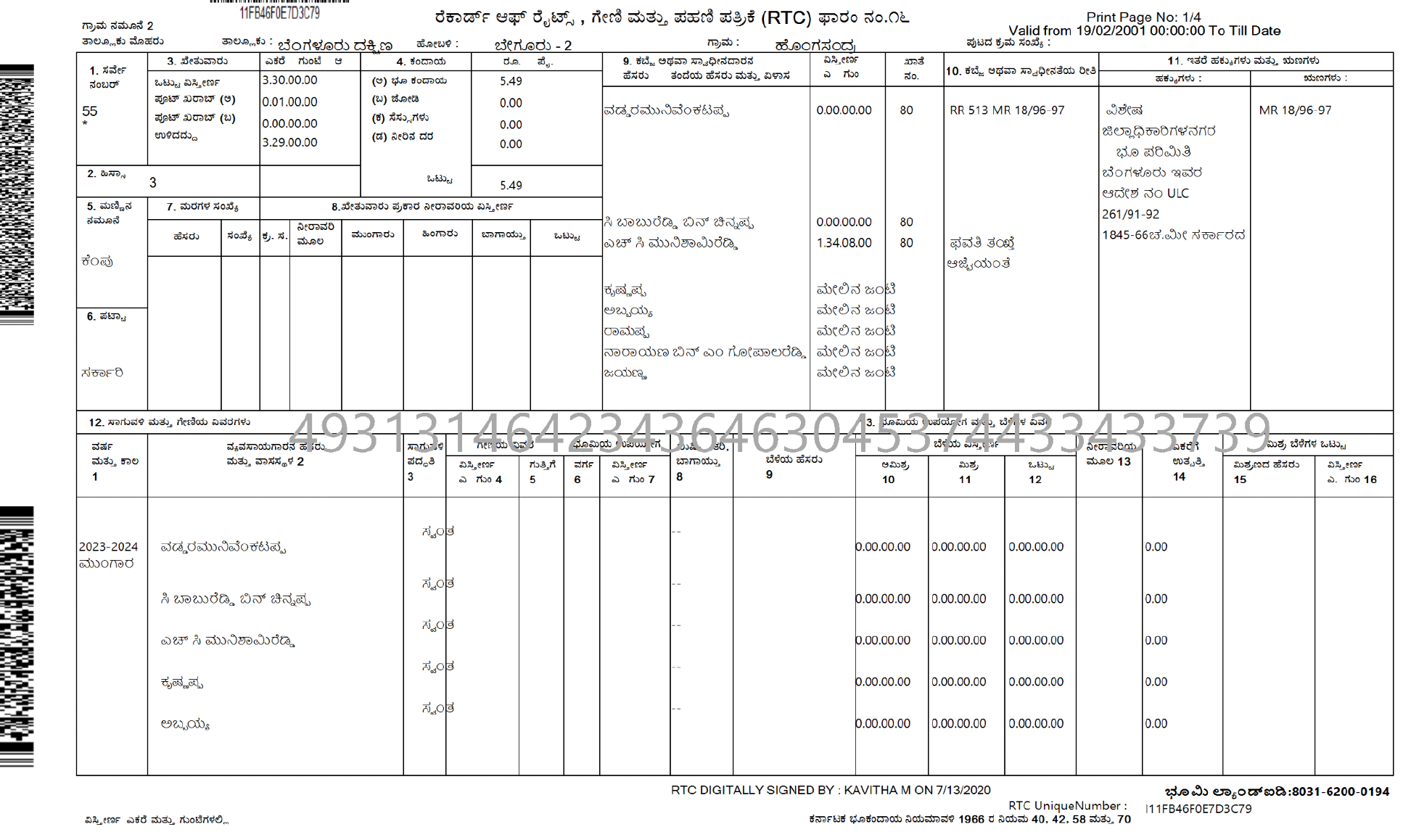13. Understanding RTC Certificates: Your Land's Official Ledger
13. Understanding RTC Certificates: Your Land's Official Ledger
What is an RTC Certificate?
Imagine you're opening a bank account. You'll get a passbook or statement that keeps track of all your transactions, right?
In the world of land ownership in India, the RTC (Record of Rights, Tenancy, and Crops) certificate serves a similar purpose. It's like your land's official ledger, meticulously maintained by the government, detailing its ownership history, current status, and even the crops cultivated on it.
source: landeed.com
Why is an RTC Certificate Important? It's More Than Just a Record
An RTC certificate is not just a Government formality, it's a crucial document that empowers you with vital information about your land. Think of it as your land's health record, providing insights into its past and present.
Here's why it matters:
Proof of Ownership: The RTC clearly states your name as the owner of the land, along with crucial details like the survey number, extent of the land, and its location. This serves as irrefutable evidence of your ownership rights, protecting you from potential land disputes and encroachments.
Facilitating Transactions: Whether you're buying, selling, or leasing your land, the RTC is a mandatory document. It's like a passport for your land, verifying its legitimacy and enabling smooth transactions.
Accessing Government Benefits: Several government schemes and subsidies related to agriculture, irrigation, or land development are only available to those with a valid RTC certificate. It's like a membership card that unlocks various benefits and financial assistance programs
How an RTC Certificate Impacts Decision Making: Real-Life Scenarios
If you're considering buying agricultural land in Karnataka and the seller claims a clear title, but the RTC (Record of Rights) shows the land has been transferred to someone else, it's a warning sign. This situation can complicate the purchase process and potentially lead to legal disputes.
To protect your interests, it's advisable to reconsider the deal and consult with a property lawyer to verify the title and understand your options. Additionally, explore other properties with clear land titles to ensure a smooth and hassle-free purchase.
Understanding essentials
An RTC certificate might seem overwhelming with its technical jargon and numerous columns. But don't worry, let's break it down into easily understandable information. Key elements to look out for include:
Owner's Details: This section clearly states your name, address, and other relevant information as the registered owner of the land.
Land Details: This includes the survey number, extent (area) of the land, location, soil type, water source, and details of any crops cultivated on it. This information is crucial for understanding the characteristics and potential of your land.
Tenancy Details: If the land is leased or rented out, this section will provide details about the tenants, lease terms, and rental income.
Mutation Details: This section records any changes in ownership or land use, ensuring the RTC is up-to-date and reflects the current status of the land.
Tenancy: If the land is rented out to tenants, their details and the terms of the tenancy will be recorded
Crops Grown: The types of crops currently or previously cultivated on the land are often mentioned, offering insights into its agricultural potential
Key Takeaways
Always ensure you have a valid RTC certificate for your land
Regularly update your RTC to reflect any changes in ownership or land use
Keep your certificate safe and secure as it's a valuable document
If you lose your certificate, apply for a duplicate immediately
Conclusion: Your Land's Official Ledger
An RTC certificate is more than just a document; it's your land's official ledger, providing a comprehensive overview of its ownership, history, and current status. By understanding its importance and key components, you can make informed decisions, protect your investment, and navigate the complexities of land ownership in India with confidence.

